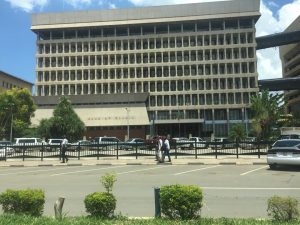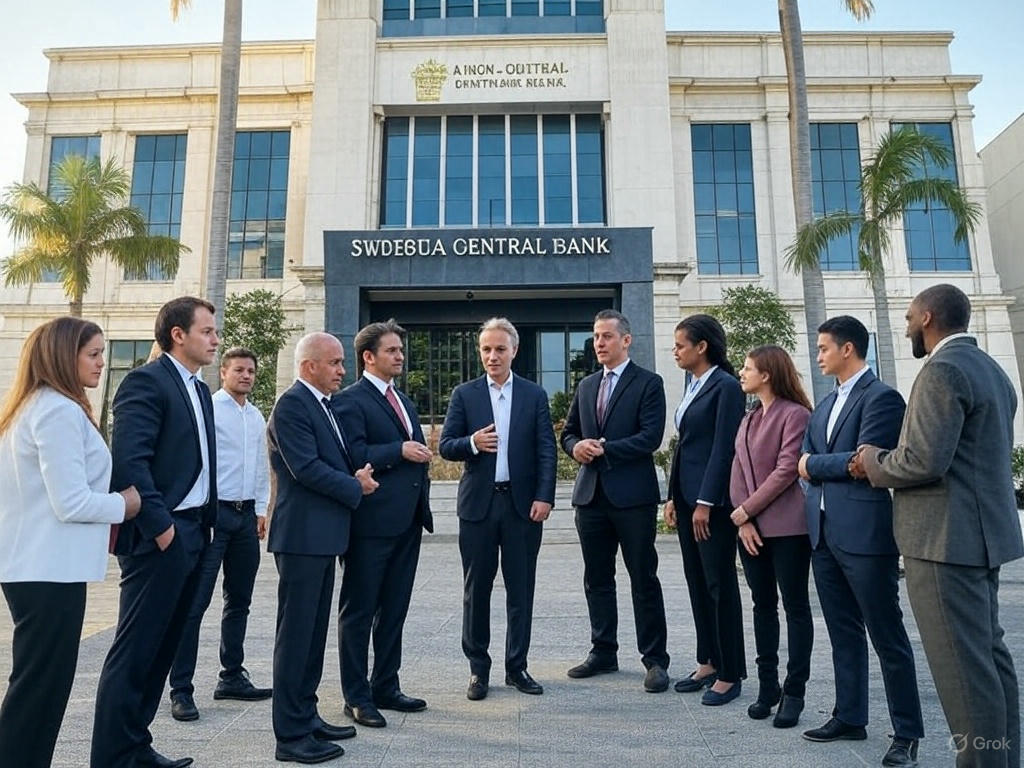Program performance remains on track despite challenges from historic drought
Washington, DC, December 16, 2024 – The International Monetary Fund (IMF) Executive Board has completed its fourth review of Zambia’s 38-month Extended Credit Facility (ECF), enabling an immediate disbursement of approximately $184 million. This brings Zambia’s total disbursements under the ECF program to $1.3 billion.
The ECF arrangement, initially approved in August 2022 for $1.3 billion and later increased to $1.7 billion in June 2024, supports Zambia’s home-grown Eighth National Development Plan. The program prioritizes macroeconomic stability, fiscal and debt sustainability, public governance reforms, and inclusive growth, particularly for the country’s vulnerable populations.

“The Bank of Zambia remains ready to act and maintains data-dependent monetary
policy, which is key to preserving the credibility of its inflation targeting framework.
Reserve accumulation and sustained exchange rate flexibility remain critical for
addressing external shocks.”
Performance Amid Economic Challenges
Despite domestic and global headwinds, Zambia’s program performance has remained broadly satisfactory. All quantitative performance criteria (QPCs) for June 2024 were met, alongside most indicative targets (ITs) for both June and September 2024. However, Zambia narrowly missed the June target on clearing expenditure arrears and the September social spending target. Structural benchmarks have shown mixed results, with five out of fifteen yet to be met, though two were completed with slight delays.
The IMF highlighted the severe impact of a historic drought, which has disrupted agricultural production and electricity output, leading to slower economic growth and rising inflation. Growth projections for 2024 have been revised downward to 1.2%, compared to 2.3% forecast during the third review. While the current account balance has improved, higher food prices and currency depreciation have fueled inflationary pressures.
Commitment to Stability and Reform
The Zambian authorities remain resolute in their efforts to stabilize the economy, restore fiscal health, and implement governance and structural reforms. “Program performance remains satisfactory, as the authorities remain committed to economic stabilization and advancing structural and governance reforms, despite the severe impact of a historic drought,” said Nigel Clarke, IMF Deputy Managing Director and Acting Chair.
Key areas of focus include:
- Fiscal Consolidation: Measures such as tax base expansion, harmonization of corporate income tax, and excise indexing aim to enhance revenue mobilization. Contingency plans for revenue and expenditure are being developed to address risks from the drought-induced economic slowdown.
- Monetary Policy: The Bank of Zambia’s data-driven monetary stance will be critical to containing inflation and preserving the credibility of its inflation-targeting framework.
- Debt Sustainability: Zambia’s public debt remains high but sustainable following restructuring agreements with official and private creditors. The IMF projects that Zambia could achieve a moderate risk of external debt distress over the medium term.
- Governance and Reforms: Structural reforms in the energy sector, anti-corruption initiatives, and climate resilience measures are essential for fostering private-sector growth and economic diversification.
Outlook and Risks
While Zambia’s economic outlook is clouded by drought-related disruptions, the IMF emphasized that continued fiscal discipline, monetary prudence, and reform implementation are crucial for building resilience and promoting inclusive growth. Improvements in governance and transparency, particularly in state-owned enterprises and the energy sector, will also play a pivotal role in supporting Zambia’s recovery.
“Enhancing transparency in the energy sector and resource management, strengthening anti-corruption measures, and continuing agriculture reform, alongside building climate resilience, will improve the business climate and support sustainable and more inclusive growth,” Clarke concluded.
With the completion of this review, Zambia moves closer to its goal of fiscal sustainability and economic revitalization, positioning itself for long-term growth and stability amid global uncertainties.




